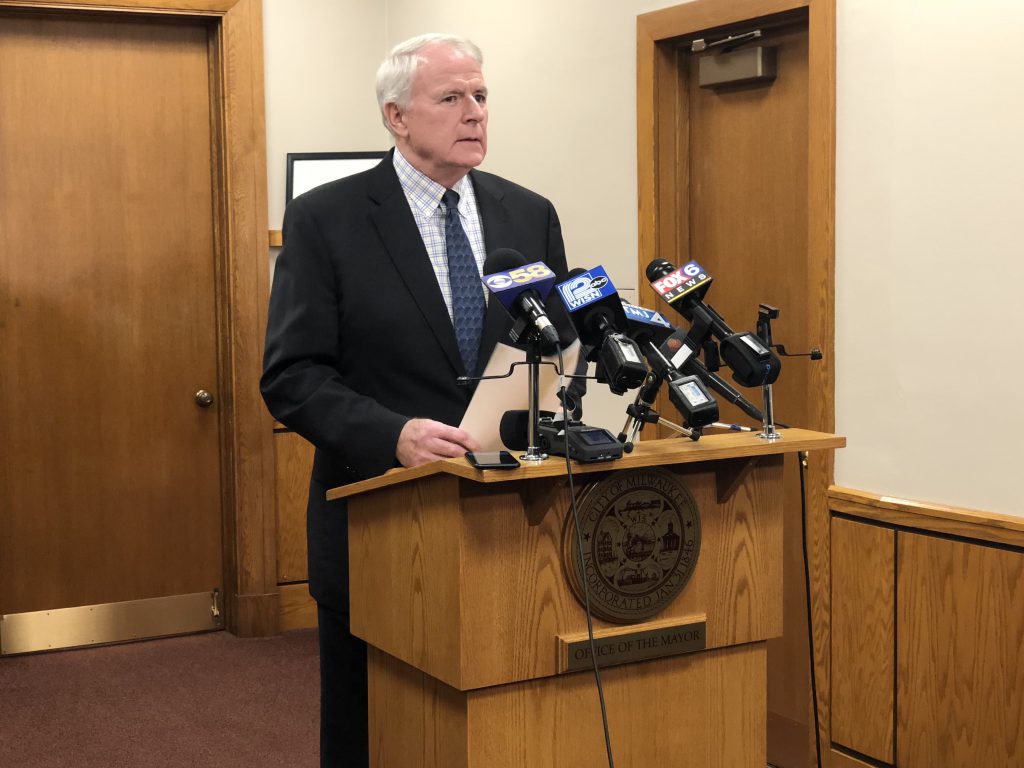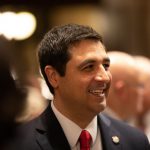Diplomats Say Ukraine War Will Change Global Trade
Current and former ambassadors with Wisconsin-ties discuss conflict and its global repercussions.
Wisconsin, along with the rest of the world, will face economic repercussions from the continuing Russian invasion of Ukraine, according to a quartet of current and former U.S. ambassadors who have ties to Wisconsin.
During an online forum Wednesday hosted by WisPolitics, the ambassadors say the conflict will realign global trade policies, which could also create opportunities for Wisconsin farmers.
The four weighed in on the ongoing war in Ukraine and the impacts felt across Europe, the United States and Wisconsin.
Barrett started the discussion by calling it a “premeditated, unprovoked, unjustified, brutal invasion” led by Russian President Vladimir Putin, and said the biggest loser in the conflict, aside from the Ukrainian people, will be the Russian economy. Barrett said heavy sanctions from the U.S. and member nations of the European Union are taking a toll on Russia, but will also have global impacts on trade.
“We are going to see some supply chain issues, particularly if it’s coming from Ukraine or from Russia,” Barrett said. “But right now, I think there’s still perhaps a guarded hope that the international community will be able to take some steps to mitigate some of the fuel issues here, some of the energy issues, but that remains to be seen.”
With ongoing declines in output of wheat, corn, oil seeds and fertilizer from Ukraine and Russia, Green said there could be opportunities for Wisconsin agribusiness.
“Our economists are telling us that, you know, it isn’t quite clear how this realignment occurs, but you could see the world break into a couple of different broad lines and that will present obviously complexities, challenges, but opportunities at the same time,” Green said.
Listen to the WPR report here.
Current, former diplomats say Ukraine war, international sanctions expected to affect Wisconsin economy was originally published by Wisconsin Public Radio.
If you think stories like this are important, become a member of Urban Milwaukee and help support real, independent journalism. Plus you get some cool added benefits.
More about the Russian Invasion of Ukraine
- Senator Baldwin, Colleagues Call for Immediate Action to Support Ukraine - U.S. Sen. Tammy Baldwin - Oct 4th, 2023
- Diplomats Say Ukraine War Will Change Global Trade - Rich Kremer - Apr 21st, 2022
- Supervisor Burgelis Introduces Resolution Supporting the People of Ukraine - Sup. Peter Burgelis - Apr 18th, 2022
- Katelyn Ferral of the Milwaukee Journal Sentinel will share her recent reporting experiences in Ukraine - Milwaukee Press Club - Apr 18th, 2022
- Milwaukee Jewish Community Gives Ukraine Aid - Catherine Capellaro - Apr 5th, 2022
- New Land Enterprises Supports World Central Kitchen’s Work in Ukraine - New Land Enterprises - Mar 28th, 2022
- Pro-Ukraine Billboard in Milwaukee, Spurred by Coincidence, Inspires Global Information Campaign - Podcamp Media - Mar 22nd, 2022
- Marquette Klingler College of Arts and Sciences hosting two-day panel on Russia’s invasion of Ukraine, March 23-24 - Marquette University - Mar 21st, 2022
- Op Ed: Ron Johnson Abandons Ukraine. Again - Bill Kaplan - Mar 21st, 2022
- Milwaukee’s sister city Irpin, Ukraine is under siege, and can use some help - Ald. Khalif Rainey - Mar 18th, 2022
Read more about Russian Invasion of Ukraine here























Joe Biden killed 200 police officers and civilians in Kiev in 2014… Then he overthrew Ukraine’s democratically elected government and installed a US puppet government.
Joe Biden and Barack O-Bomb-A started the war in Ukraine, not Vladimir Putin.
Energy is the most discussed issue, but the ripple effects from the declines in output of wheat, corn, oil seeds and fertilizer (as Green pointed out) will likely become a much bigger issue as we go through a harvest cycle. Definitely something to pay attention to because the costs of food products will be rising.
The short term mindset of isolating Russia from the global capitol markets & banning trade as a substitute to using military force will need to change quickly after this fiasco is over.
Avoiding the political grandstanding to turn these strategies into a long-term “punishment” or ostracizing companies that resume operations in Russia will likely be difficult in the Twitter world politicians live in,…. let’s hope some of them have read a few history books.